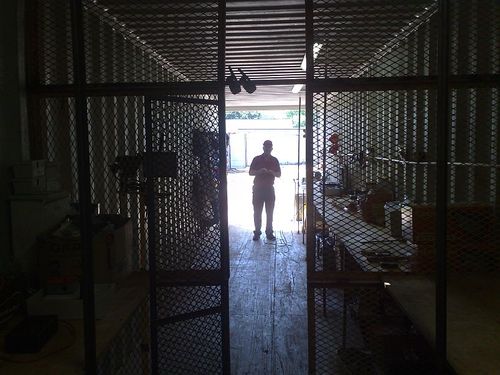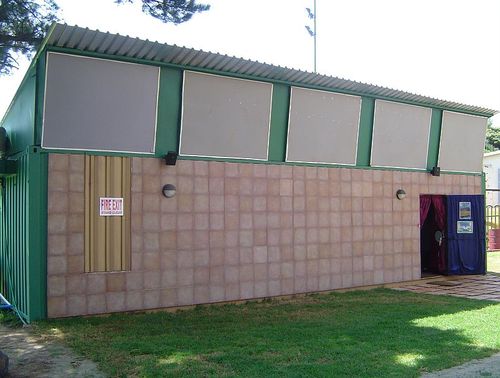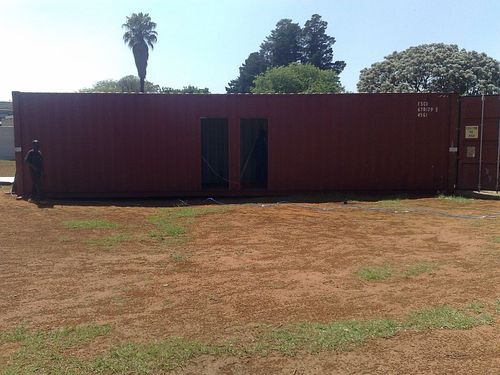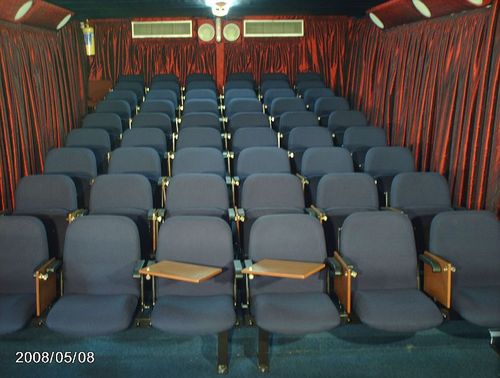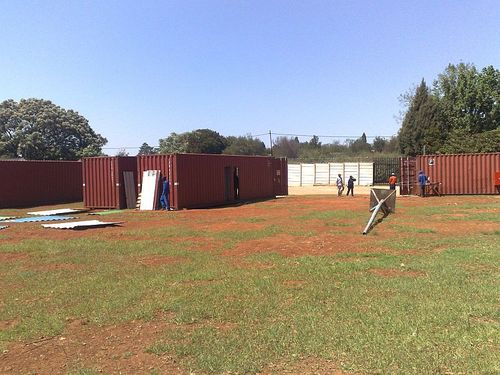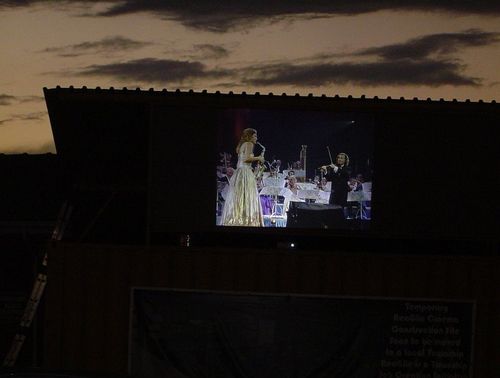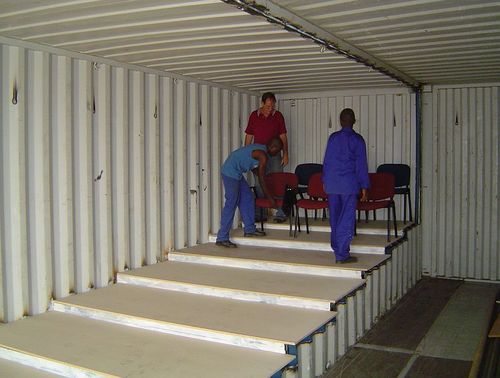In recent years, Western audiences were able to see more South African films and feed their curiosity for a production which was largely unknown. In South Africa’s daily life, however, things remain quite different. Like the bulk of African countries – but in an unusual way for a country which still got a strong network of theaters – South African people have hardly access to South African films, especially those living in the most deprived areas. It is in this context that ReaGilè mini-cinema project, founded by John Eschenburg, was developed. Having highlighted the issue of distribution and its significance during the apartheid era, Keyan Tomaselli is associated with this project. Eschenburg and Tomaselli give us some insights into an innovative and promising project.
CCMS recently developed a co-operation project with the ReaGilè mini-cinema initiative
What is the ReaGilè mini-cinema initiative exactly?
ReaGilè was started some 4 years ago. ReaGilè was developed out of « The Acoustic Image » which does home cinema / theatre installations. The ReaGilè Project which has been established by ReaGilè iHs Pty Ltd, aims to provide job creation, education, entertainment, crime prevention, health care, and township and rural development, through the establishment of 1 200 community complexes. Each ReaGilè co-operative cinema consists of a pre-fabricated, self-contained, education / entertainment complex, consisting of a 60 seat cinema / theatre and a 30 seat computer / internet centre, as well as a community care centre and a community policing centre, situated on a 400m² stand on a public open space or at a local school. ReaGilè co-ops provide auditorium and computer facilities. Each complex is owned and run by 25 local community members, who receive a stipend plus medical-aid and share in all distributable profits The ReaGilè Project gives preference to women, youth and the disabled and pricing is structured to be affordable for each local community – with free outdoor viewing of sport, edutainment, community news and advertising on five outdoor screens. The purchase of ReaGilè by the co-ops is financed through government or other grants and / or term Loans, while ReaGilè iHs (Pty) Ltd provides free accounting, technical, logistical support funded by the sale of advertising to corporate companies.
What kind of expertise will be brought by CCMS and what kind of research will be implemented?
CCMS will cooperate with ReaGilè as its strategic research partner, in the context of a national film city research project. The macro economic framework draws on an Australian research model. The first phase is conducted with University of KwaZulu-Natal graduate students; the research will be continued next year by our Centre and our students. We are hoping that other South African universities will join the project also. Already, the National film and TV Institute, Accra, Ghana, has expressed interest in conducting a similar project. The project is being conducted under the auspices of the SA Communication Association Film Working Group, and also the CILECT African Research Association. (CILECT is the « Centre International de Liaison des Ecoles de Cinéma et de Télévision » based in Brussels).
The issue of distribution has always been a very sensitive one in the history of South African cinema, during and after the apartheid era. What is today’s situation?
ReaGilè is determined to fulfill the NFVF long held « NFVF Vision 2025 ». It is a national imperative: to create facilities so that ordinary South Africans can handle their own images, and then deepen democracy and create prosperity. ReaGilè is determined to make this a reality by 2013 due to dire need for job creation and the massive job creation potential of the ReaGilè Project.
In term of content, what kind of films the ReaGilè mini-cinema will be screening?
Educational, local language feature and English feature films (via Fireworks Media). ReaGilè will work with all the major distributors and TV stations. They will also screen independent films. The demo complex in Gauteng is very impressive indeed, with state of the art digital projection, tiered seating, surround sound, and a top quality cinema environment built out of custom designed containers. It’s the real experience in every way. It is hoped that the project will start rolling out in Gauteng in December 2011.
Could you tell us more about the social environment and places wherein ReaGilè initiative will be implemented?
The cinema complexes (that will include a refreshment kiosk, community policing and community care centres) will be located on state-owned land, parks and schools, to serve disadvantaged black townships with catchments of 30 000 people. This means that the inhabitants of these under-developed and often under-serviced areas will have within walking distances a safe, leisure and educational place to visit and experience.
How is this initiative regarded by South African institutions (such as the National Film and Video Foundation) and professional milieus?
The NFVF was so impressed by the quality of the « ReaGilè Experience » that they engaged ReaGilè iHs Pty td to build a cinema/auditorium in their offices, as well as at the Ekayha Centre in Kwa-Mashu, in KwaZulu Natal. A letter of endorsement of the ReaGilè Project was signed by Minister Paul Mashatile and Johannesburg City. Universities and every other dignitary who has experienced the project have been amazed by the potential of this intitiative. It promises to bring cinema to the people, at affordable price and in safe spaces. Once all 1 200 complex are established, it is estimated that R350 million annually will be returned to the industry via film distribution companies. The initiative will have special impact for local content producers making videos in local languages. Thus the complexes will service both high end and low budget films, both international and local.
John H. Eschenburg is the Founder of the ReaGilè iHs (Pty) Ltd. More information at [www.reagile.co.za]
Keyan G. Tomaselli is Professor and Director of The Centre for Communication, Media and Society, University of KwaZulu-Natal, Durban. More information at [http://ccms.ukzn.ac.za/]
